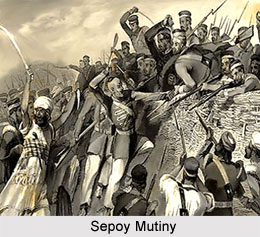 Indian administration was undergoing major and significant changes in the post Sepoy Mutiny era. The East India Company rule was abolished and was thus ushered in a new era of western thoughts. Basically, British administrators were trying to rule the country following a strict western system of politics. Several harsh and brutal religious customs were done away with; they were replaced with English laws. Industrialisation was such a field that was fast taking up pace, filling the voids in factory improvements. Indian Factory Legislation thus came into being, approved by a rule of law.
Indian administration was undergoing major and significant changes in the post Sepoy Mutiny era. The East India Company rule was abolished and was thus ushered in a new era of western thoughts. Basically, British administrators were trying to rule the country following a strict western system of politics. Several harsh and brutal religious customs were done away with; they were replaced with English laws. Industrialisation was such a field that was fast taking up pace, filling the voids in factory improvements. Indian Factory Legislation thus came into being, approved by a rule of law.
On 31st January 1890, the Indian Factory Bill was introduced in the Imperial Legislative Council. On 25th September, the Home Government appointed the Lethbridge Commission to study India`s needs for factory legislation.
On 19th March 1891, the Government of India passed a bill which provided for specific rules and regulations, including - the age of child labour to be established from age nine to twelve years of age, child labour could work a maximum of six hours with one half hour break, women were limited to eleven hours of work per day with a one and a half hour break and all factories had to provide a half-hour break at mid-day and one day of holiday per week. The bill called upon local government to address matters of sanitation.
This article is a stub. You can enrich by adding more information to it. Send your Write Up to content@indianetzone.com



















